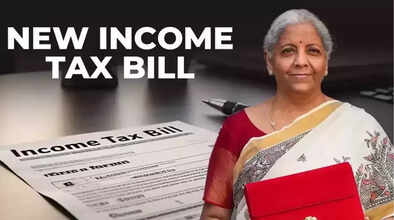TAX: The new tax law will strengthen the pocket of the common man and all the confusion will end..

The Government of India has completely revamped the income tax rules. This is the first time since independence that such a major tax reform has taken place. The old income tax law that was in place since 1961 has now been abolished. The Income Tax Act, 2025, will now be implemented in its place. The President has also approved this law on 21 August 2025. This new law will come into force from 1 April 2026. The tax rates have not changed in this, but the entire system has now been made straightforward, clear, and understandable. Now the common man will also be able to understand the tax rules, and companies will also get relief from the confusion of documents.
The old law was bulky.
The 1961 law was very large and complicated. It had more than five lakh words, 819 different sections, and 47 chapters. Now all these have been reduced in the new law. Now the new law is contained in just two and a half lakh words. Sections have been reduced to 536 and chapters to just 23. More tables and formulas have been provided for calculations related to tax, which have made reading and understanding the rules much easier. Another big change is that confusing words like assessment year and previous year have been eliminated. Now, everyone will follow the same method in the name of the tax year, that is, only the year from April to March will be considered for tax.
TDS rules will now be straightforward
The rules of TDS (tax deduction) and TCS (tax collection) were spread across 71 different sections in the old law. Now they have been combined and summarized into just 11 sections. Now, who has to deduct how much tax, on which income tax will be levied, and who will get an exemption, all this is clearly written in one place. This will not only benefit the common man, but companies will also find it easier to prepare reports. Now the scope of any mistake will be reduced.
Employees will get relief.
Common working people have also been given relief in the new law. Earlier, if the company provided you a vehicle to commute to and from the office, then only it was considered tax-free. Now, if the company bears the cost of your travel by taxi, bus, or any other means, then that too will be exempt from tax. This is a good step according to today's working life. Also, another big change is that now not only gold, silver, cash, or valuables, but digital assets like bitcoin or any such thing that can earn money in the future, will also be looked at from a tax point of view. That is, now the definition of unknown property has also changed.
Tax officers will keep a close watch.
Earlier, when tax officers used to raid, they could only check the papers and property kept in the house, shop, or office. But now the law has changed. Now, tax officers will be able to see digital documents as well. Be it your email, mobile, laptop, online trading account, or even social media, everything has now come under the scope of investigation. Its purpose is to catch those who are hiding their income. Now the officers will be able to take action not only on your total income but also on your hidden income.
The time to correct the mistake has also been reduced.
Till now, if someone has made a mistake related to TDS, then he used to get six years to correct it. Now this time has been reduced to two years. This will make the system faster and more transparent. Apart from this, now certificates can be obtained for less or zero TDS on more types of income. Till now, this was available only for some things like rent, interest, and commission, but now this facility will be available in many new cases as well. This will facilitate businesspeople in money transactions.
Strict rules for foreign companies
Foreign or associated companies that used to show their income here and there to save tax, now the rules have been tightened for them as well. Now, if there is more than 26% stake in a company or if the management, money, or control of a company is in the hands of another company, then it will be considered an Associated Enterprise. Earlier, it was necessary to fulfill both these conditions simultaneously, but now even one is enough. This will further strengthen the government's grip in matters like transfer pricing.
Disclaimer: This content has been sourced and edited from TV9. While we have made modifications for clarity and presentation, the original content belongs to its respective authors and website. We do not claim ownership of the content.

